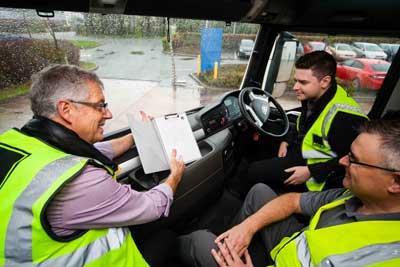
Fleet operators are being urged to show their support for a move to include the Cat C+E licence in the Large Goods Vehicle driver apprenticeship.
The 12 month apprenticeship, which was launched in 2016, currently only includes the Cat C licence, which is limited to rigids.
The FTA said this week that without the inclusion the Cat C+E licence the apprenticeship is “not fit for purpose,” because it fails to address most hauliers’ needs and to tackle the HGV driver shortage.
The FTA, along with the RHA, has been lobbying the Institute for Apprenticeships and Technical Education (IFATE), the body which approves apprenticeships, to allow the apprenticeship to cover the Cat C+E licence. They also want funding for the apprenticeship, currently set at £5,000 per apprentice, to be increased to £7,000.
IFATE is asking for evidence of industry demand for Cat C+E in the apprenticeship scheme before it gives its approval. It has asked the logistics industry Trailblazer Group to put together a survey to gauge industry support for such a move.
Sally Gilson, FTA head of skills, called on hauliers to respond to the survey which can be accessed via the FTA or RHA.
“Without the inclusion of the Cat C+E licence this apprenticeship is not fit for purpose,” she said. “We want as many companies as possible to make their views known through the survey so that IFATE can see that there is more than enough demand for this.”
Pointing to a 31% fall last year in the take up of driving goods vehicles apprenticeships, which includes the Large Goods Vehicle apprenticeship, Gilson added: “We believe this will significantly increase the numbers of firms signing up to this apprenticeship.”
The survey results will play a central role in IFATE’s decision. Skills for Logistics MD David Coombes, a member of the IFATE transport and logistics panel, told motortransport.co.uk that the inclusion of the CAT C+E must win the approval of the whole of the sector.
“That will be fine if that’s what the sector as a whole wants, but the Institute is keen to ensure that that is the case before asking the Trailblazer to revise the current standard,” he said. “If the survey clearly indicates that the sector as a whole wants to expand the apprenticeship, the Trailblazer, with the support of the Institute, will be free to start the revisions process as soon as they can.”
Coombes added that “it is reasonable to assume that the revision of the standard will lead to a review of the current funding band.”











